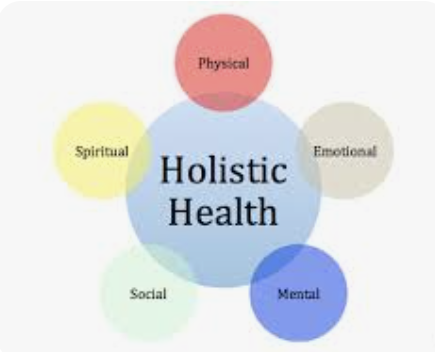The mind and body are deeply interconnected, and the health of one profoundly influences the other. While mental health and physical health are often treated as separate entities, growing research shows that they are closely linked, with each impacting the other in significant ways. Understanding this connection is crucial for achieving overall well-being and can help guide more holistic approaches to health care. In this blog post, we’ll explore the connection between mental and physical health, the implications for overall wellness, and strategies for nurturing both aspects of your health.
How Mental Health Affects Physical Health
Mental health conditions, such as depression, anxiety, and chronic stress, can have a direct impact on physical health. Here are some key ways in which mental health can influence physical well-being:
Chronic Stress and Physical Health
Chronic stress is one of the most significant ways in which mental health can affect the body. When you experience stress, your body goes into “fight or flight” mode, releasing stress hormones like cortisol and adrenaline. While this response is helpful in short bursts, chronic stress keeps your body in a constant state of high alert, which can lead to a range of physical health problems.
- Cardiovascular Issues: Chronic stress has been linked to an increased risk of heart disease, high blood pressure, and stroke. The constant release of stress hormones can cause inflammation and damage to blood vessels, leading to these conditions.
- Weakened Immune System: Prolonged stress can weaken the immune system, making you more susceptible to infections and illnesses. Stress can also slow down the healing process, meaning it takes longer for your body to recover from injuries or illnesses.
- Digestive Problems: Stress can disrupt the digestive system, leading to issues such as irritable bowel syndrome (IBS), acid reflux, and ulcers. Stress-related eating habits, like overeating or loss of appetite, can also contribute to digestive problems.
Depression and Physical Symptoms
Depression is a mental health condition that not only affects mood and emotions but can also manifest in physical symptoms. Individuals with depression may experience:
- Chronic Pain: Depression has been associated with an increased perception of pain, leading to chronic pain conditions like fibromyalgia and back pain. This can create a vicious cycle, where pain exacerbates depression and vice versa.
- Fatigue and Low Energy: Depression often leads to feelings of fatigue and low energy, even when the individual is getting enough rest. This can impact daily functioning and make it difficult to engage in physical activities.
- Sleep Disturbances: Insomnia or excessive sleeping are common in individuals with depression. Poor sleep quality can further aggravate physical health issues, such as heart disease and weakened immunity.
Anxiety and Physical Health
Anxiety disorders can lead to a range of physical health problems, often due to the body’s prolonged stress response. Common physical symptoms of anxiety include:
- Increased Heart Rate: Anxiety can cause a rapid or irregular heartbeat, known as palpitations, which can lead to long-term cardiovascular issues if not managed.
- Muscle Tension: Chronic anxiety can cause muscle tension, leading to headaches, neck pain, and other musculoskeletal issues.
- Respiratory Problems: Anxiety can cause rapid, shallow breathing, which may exacerbate respiratory conditions like asthma or lead to hyperventilation.
How Physical Health Affects Mental Health
Just as mental health can influence physical well-being, physical health can also have a significant impact on mental health. Here’s how physical conditions can affect your mind:
Chronic Illness and Mental Health
Living with a chronic illness, such as diabetes, heart disease, or chronic pain, can take a toll on mental health. The constant management of symptoms, medical appointments, and lifestyle changes can lead to:
- Depression: Individuals with chronic illnesses are at a higher risk of developing depression. The emotional burden of managing a long-term condition can lead to feelings of hopelessness and sadness.
- Anxiety: Fear and worry about the future, disease progression, or medical procedures can lead to anxiety disorders. This is especially true for conditions that require constant monitoring, such as diabetes or heart disease.
- Isolation and Loneliness: Chronic illness can limit physical activity and social interactions, leading to feelings of isolation and loneliness, which can further contribute to mental health issues.
Poor Physical Health and Cognitive Function
Physical health conditions, particularly those affecting the cardiovascular system, can also impact cognitive function. For example:
- Heart Disease: Cardiovascular health is closely linked to brain health. Conditions like hypertension, atherosclerosis, and heart disease can reduce blood flow to the brain, increasing the risk of cognitive decline and dementia.
- Obesity: Obesity has been associated with an increased risk of cognitive impairment, including memory problems and slower processing speed. The inflammation and metabolic changes associated with obesity are thought to contribute to these cognitive issues.
Exercise and Mental Health
On the positive side, maintaining good physical health through regular exercise can significantly benefit mental health. Exercise releases endorphins, which are natural mood lifters, and can reduce symptoms of depression and anxiety. It also promotes better sleep, increases energy levels, and enhances cognitive function.
The Importance of a Holistic Approach to Health
Given the strong connection between mental and physical health, it’s essential to take a holistic approach to wellness. Addressing both aspects of health can lead to better outcomes and a higher quality of life. Here are some strategies for nurturing both mental and physical health:
1. Regular Physical Activity
Incorporating regular physical activity into your routine is one of the best ways to support both mental and physical health. Exercise can help manage weight, reduce the risk of chronic diseases, and improve mood and mental clarity. Aim for at least 30 minutes of moderate exercise most days of the week, whether it’s walking, swimming, yoga, or cycling.
2. Balanced Nutrition
A balanced diet rich in fruits, vegetables, whole grains, and lean proteins is crucial for maintaining both physical and mental health. Certain nutrients, such as omega-3 fatty acids, B vitamins, and antioxidants, are particularly important for brain health and can help reduce symptoms of depression and anxiety.
3. Adequate Sleep
Quality sleep is essential for overall health. Poor sleep can negatively impact both mental and physical health, leading to issues such as cognitive decline, mood disorders, and weakened immunity. Aim for 7-9 hours of sleep per night and practice good sleep hygiene, such as maintaining a regular sleep schedule and creating a relaxing bedtime routine.
4. Stress Management
Effective stress management is key to preventing chronic stress and its associated health problems. Incorporate relaxation techniques such as deep breathing, meditation, and progressive muscle relaxation into your daily routine. Additionally, consider seeking support through therapy if you’re struggling with chronic stress or mental health issues.
5. Routine Health Screenings
Regular check-ups with your healthcare provider can help detect and manage physical health conditions early, reducing the risk of complications that could affect mental health. Screenings for blood pressure, cholesterol, blood sugar, and mental health assessments are all important components of preventive care.
Conclusion
The connection between mental and physical health is undeniable, and understanding this link is essential for achieving overall well-being. By taking a holistic approach to health—addressing both the mind and the body—you can improve your quality of life and reduce the risk of health complications. Whether you’re managing a chronic illness, coping with stress, or simply looking to enhance your wellness, nurturing both mental and physical health is key.
At Kingston & Co Counseling, we are dedicated to supporting you on your journey to better health, both mentally and physically. If you’re struggling with mental health issues or looking for ways to improve your overall well-being, our team of experienced therapists is here to help. Please contact us to learn more about our services or to schedule an appointment. We’re here to help you achieve the balanced, healthy life you deserve.







